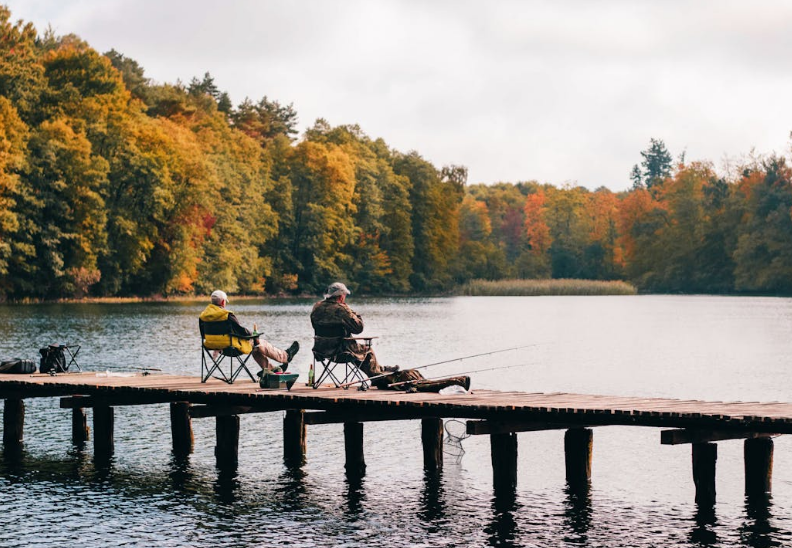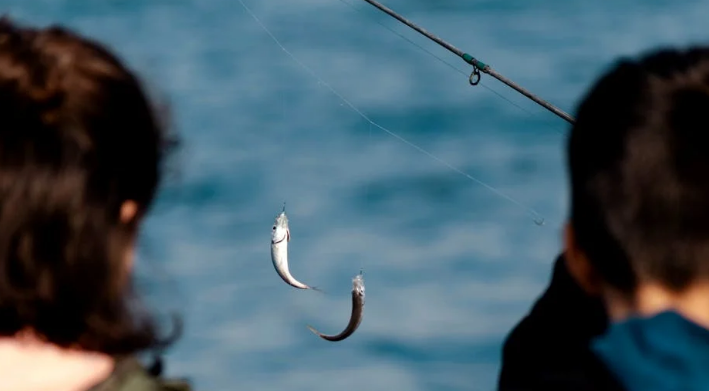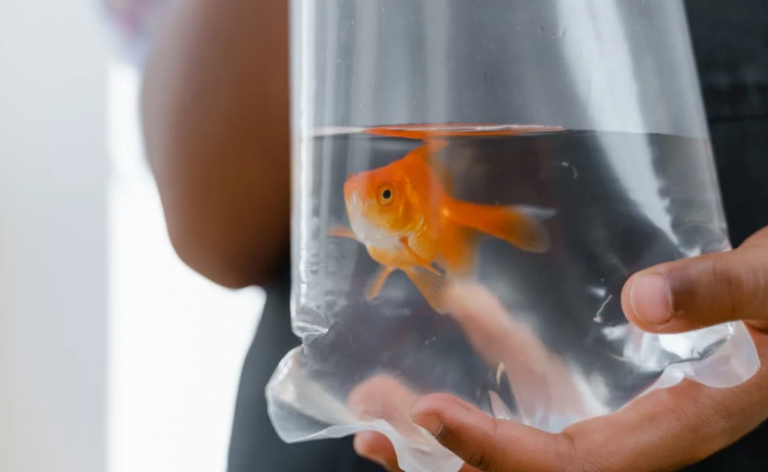Fishing is a popular activity enjoyed by millions around the world. Whether for recreation, sport, or as a livelihood, fishing connects people to nature and often to each other. However, fishing isn’t just about casting a line and waiting for a bite. It comes with responsibilities, including having a valid fishing license. Fishing without a license can lead to fines and penalties. In this article, we will explore what those penalties look like in the United States and the United Kingdom. We’ll cover why licenses are needed, the consequences of fishing without one, and how to obtain the proper licenses.
About Fishing Licenses
Before diving into the specifics of fines, it’s essential to understand what a fishing license is and why it is required. A fishing license is a regulatory or legal mechanism used to control fishing activities. By requiring a license, governments can manage fish populations, support conservation efforts, and ensure that fishing activities are sustainable for the future.

Why Do You Need a Fishing License?
- Conservation: Licenses help fund conservation efforts, ensuring fish populations are not depleted and that their habitats are protected.
- Management: They allow for better management of fish stocks, helping maintain the balance in ecosystems.
- Regulation: Licensing helps prevent overfishing and protects endangered species.
- Support: Fees collected from licenses often go towards fishery research and community education programs.
With these reasons in mind, it’s clear that fishing licenses play a crucial role in maintaining healthy water ecosystems and ensuring that fishing can be enjoyed for generations to come.
Fishing Without a License in the USA
In the United States, fishing regulations vary widely by state. Each state has its own rules and penalties for fishing without a license. Let’s look at some examples to give you an idea of what you might face if you decide to fish without the necessary permits.
General Overview
In the U.S., fishing without a license is typically considered a misdemeanor, meaning it’s a minor crime but still one that carries penalties. The fines and consequences can differ greatly depending on where you are fishing.
Examples of State Penalties
Texas
In Texas, fishing without a valid license can result in fines ranging from $25 to $500. Repeat offenders might face even higher fines or additional penalties. Texas takes its fishing regulations seriously to protect its diverse aquatic life.
California
California also enforces strict penalties. If caught fishing without a license, you could be fined up to $1,000 for a first offense. California’s large coastline and numerous lakes make it a prime spot for both commercial and recreational fishing, which is why the state enforces such stringent regulations.
Florida
In Florida, the fines for fishing without a license can be up to $500 for a first offense. Florida’s rich marine environment and inland waterways are vital to its economy and ecology, necessitating rigorous enforcement.
New York
New York State imposes fines of $50 to $250 for fishing without a license. Like other states, New York uses these funds to maintain and protect its fishing resources.
Other Considerations
Apart from the fines, individuals caught fishing without a license may also face other consequences such as:
- Confiscation of Equipment: Fishing gear, including rods, reels, and boats, might be seized.
- Court Appearances: You could be required to appear in court, leading to additional legal fees and time commitments.
- Increased Fines for Repeat Offenders: Multiple offenses can lead to increased fines and more severe penalties.
How to Get a Fishing License in the USA
Getting a fishing license in the United States is generally a straightforward process. Here’s how you can obtain one:
- Online: Most states offer the option to buy a fishing license online through their wildlife or natural resources department websites.
- In-Person: Licenses can also be purchased at local retail stores, bait shops, or state parks.
- Over the Phone: Some states allow you to buy a license by calling a toll-free number.
- Mobile Apps: Many states now have mobile apps where you can buy and store your fishing license digitally.
Requirements
Typically, you will need to provide some personal information such as your name, address, and possibly your social security number. There are often different types of licenses available, including:
- Resident vs. Non-Resident: Different rates and rules apply depending on whether you live in the state.
- Short-Term vs. Annual: You can usually choose between a one-day, multiple days, or annual licenses.
- Special Licenses: Certain fish species or locations might require additional permits.
Fishing Without a License in the UK
The United Kingdom also has strict rules about fishing without a license. The UK government requires anglers to have a valid fishing license, and the penalties for fishing without one can be severe.
General Overview
In the UK, fishing without a license can result in hefty fines. The Environment Agency enforces these rules in England, and similar agencies oversee compliance in Scotland, Wales, and Northern Ireland.
Penalties for Fishing Without a License
England and Wales
In England and Wales, the fine for fishing without a license can be up to £2,500. This significant penalty reflects the importance placed on protecting fish stocks and ensuring sustainable fishing practices.
Scotland
In Scotland, fishing regulations are somewhat different. While there isn’t a blanket requirement for a fishing license in all waters, specific types of fishing and certain waters do require permits. Fines can vary, but they are often substantial to deter illegal fishing.
Northern Ireland
Northern Ireland also requires anglers to have a fishing license. The fines here can be steep as well, up to £1,000 for first-time offenders.
Additional Consequences
Much like in the U.S., fishing without a license in the UK can lead to other consequences:
- Confiscation of Equipment: Authorities might seize your fishing gear.
- Court Summons: Offenders are often required to appear in court, potentially leading to further legal trouble and costs.
- Record of Offense: Having a record of such offenses can impact your ability to obtain licenses in the future.
How to Get a Fishing License in the UK
Obtaining a fishing license in the UK is relatively simple. Here’s how you can get one:
- Online: The Environment Agency’s website offers an easy way to purchase fishing licenses.
- By Phone: Licenses can be bought by calling the Environment Agency directly.
- At the Post Office: You can also buy a license at most Post Offices across the UK.
Requirements
You will typically need to provide:
- Your personal details like name and address.
- The type of license you need (coarse fishing, trout, salmon, etc.).
- The duration (1 day, 8 days, or 12 months).
In the UK, licenses are often required for fishing in rivers, lakes, and canals. However, rules can differ for private waters or certain types of fishing, so it’s important to check local regulations.
Why You Should Always Have a License
Fishing without a license is not worth the risk. Here are a few reasons why you should always ensure you have the correct license before heading out to fish:
- Legal Compliance: Having a license means you are abiding by the law and avoiding potential fines and legal issues.
- Supporting Conservation: Fees from fishing licenses help fund important conservation and management efforts.
- Enjoyment and Respect: Fishing responsibly shows respect for the environment and for other anglers. It ensures that fishing spots remain plentiful and beautiful for everyone to enjoy.
- Avoiding Hassles: Being caught without a license can lead to unpleasant encounters with law enforcement, court appearances, and the loss of fishing gear.
Conclusion
Fishing is a fantastic way to connect with nature, relax, and even provide food for your family. However, it’s crucial to remember the responsibilities that come with it. Fishing without a license can lead to significant fines and other penalties, both in the United States and the United Kingdom. By understanding and respecting these rules, you help preserve fish populations and ensure that the joy of fishing can continue for future generations.
Always check the specific regulations for the area where you plan to fish and make sure you have the proper license. It’s a simple step that supports the environment, upholds the law, and keeps you on the right side of the fishing experience.



